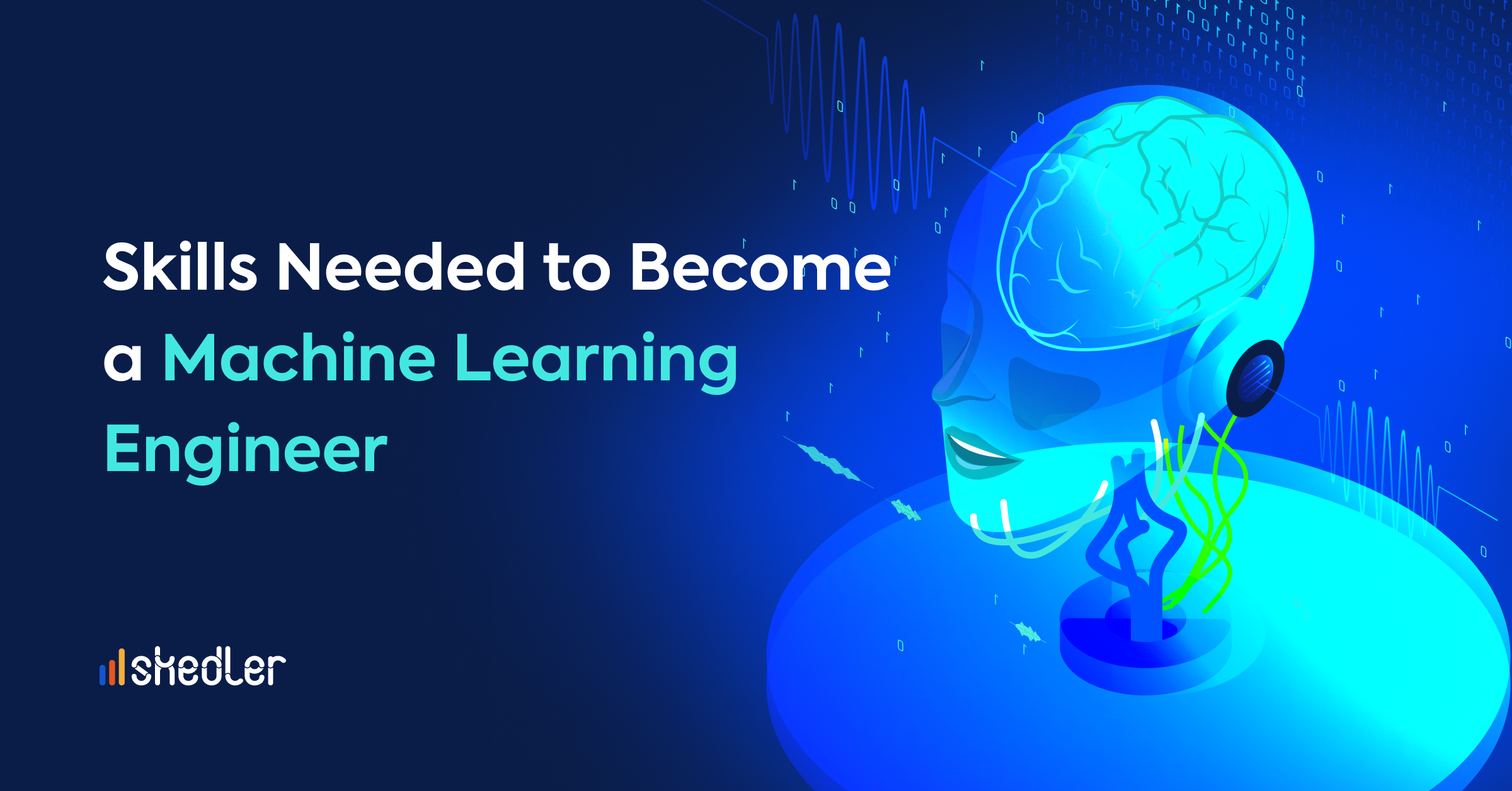Skills Needed to Become a Machine Learning Engineer in 2024
We have known about the concept of machine learning for decades. However, recent advances in complex mathematical computations applied to vast data sets have propelled machine learning to unprecedented sophistication. If you’re into tech innovations, you’ve likely witnessed this firsthand.
Over the past few years, Machine Learning has gradually integrated into our daily lives. From enhancing our selfies to engaging with virtual assistants like Alexa or Siri, an increasing number of applications harness the power of machine learning.
In a nutshell, Machine Learning is one of the pillars of artificial intelligence, where machines learn much like humans—through training, experience, and feedback. Then, they apply this knowledge to diverse tasks, from classification to robotics, making it a highly sought-after skill in programming and tech.
Recently, the significance of ML has been underscored by findings from the “2023 AI and Machine Learning Research Report” by Rackspace Technology. The report shows that 72% of surveyed companies have integrated AI and ML into their IT and business strategies. Moreover, an astounding 69% of them hailed AI/ML as the most important technology. As a result, it comes as no surprise that industry giants like IBM, Google, or Meta have embraced machine learning.
In this article, we delve into the role of Machine Learning engineers and unveil the essential skills needed to navigate this promising world.
Backgrounds of Machine Learning Engineers
Machine Learning Engineers come from diverse backgrounds, each contributing unique perspectives and expertise to this multidisciplinary field. Many of these engineers are graduates with advanced degrees, holding masters or doctorates in fields such as Computer Science, Artificial Intelligence, Data Science, or Software Engineering.
On the other hand, many Machine Learning Engineers originate from software development, using their practical programming skills and experience. They come from fields like Software Engineering, Data Engineering, and Data Science, and they apply their expertise to translate complex algorithms into real-world applications.
This diversity of educational and professional backgrounds is a testament to the versatility of machine learning as a field.
To gain insights into the journeys of ML Engineers and gather valuable tips, you can start searching for experiences shared by professionals in the field. For instance, Abhigya Verma has created a YouTube video detailing her path to becoming an ML Engineer for ServiceNow, where she provides interview tips and more. Experiences like hers can offer valuable guidance for those aspiring to follow a similar career path.
https://www.youtube.com/watch?v=mxKJhOwDVeo
Skills Required for a Machine Learning Engineer
 Discussing the skills required for a machine learning engineer is challenging due to their rapid evolution. Furthermore, by the time this article is written and published, this list may no longer be up to date. Nevertheless, we’ve compiled a foundational list of skills that a machine learning engineer needs in today’s landscape.
Discussing the skills required for a machine learning engineer is challenging due to their rapid evolution. Furthermore, by the time this article is written and published, this list may no longer be up to date. Nevertheless, we’ve compiled a foundational list of skills that a machine learning engineer needs in today’s landscape.
Of course, it should be noted that a solid technical background is essential, encompassing a thorough understanding of computer science, software engineering concepts, data analysis, and mathematical and statistical knowledge. In addition, it is crucial to be proficient in the following areas:
Data Science Expertise
A Machine Learning Engineer must be proficient in the fundamentals of data science, which includes Python, statistics, model optimization, and the utilization of machine learning frameworks like sci-kit learn.
Software Engineering Prowess
Proficiency in programming languages (Python, Java, C++, JavaScript) is crucial, along with expertise in distributed computing, database management, containerization, and API development. Understanding software engineering principles, including debugging, testing, and continuous integration, is vital for skilled Machine Learning Engineers.
Machine Learning Algorithms and Frameworks
An ML Engineer should possess a profound understanding of deep learning architectures, machine learning algorithms, and the theoretical underpinnings of the field. Proficiency in popular frameworks such as Keras, TensorFlow, and PyTorch is paramount.
Machine Learning System Design
Beyond just algorithmic knowledge, Machine Learning Engineers must have the capability to design and construct end-to-end machine learning systems. This includes the development of essential infrastructure and tooling to facilitate the seamless flow of machine learning pipelines.
Distributed Computing
Proficiency in handling large datasets and the ability to scale machine learning models is vital. Experience with distributed computing platforms like Hadoop and Spark is often required to manage the complexities of big data.
Cloud Computing
A Machine Learning Engineer should be well-versed in deploying machine learning models on cloud platforms such as AWS, GCP, and Azure, harnessing the scalability and flexibility of cloud-based infrastructure.
Specialized Domains
Depending on the projects and the industry, you may need additional specialized skills. These could include applied mathematics, neural network architectures, physics, data modeling and evaluation, advanced signal processing techniques, natural language processing, audio and video processing, and reinforcement learning.
With a strong technical foundation, soft skills, and a commitment to growth, you can thrive in the ever-expanding world of machine learning.
Soft Skills for Success in Machine Learning
In the dynamic realm of machine learning, technical expertise is just one part of the equation. For instance, soft skills are equally crucial for success as a Machine Learning Engineer. These skills enable professionals to communicate, adapt, and collaborate effectively in a rapidly evolving field, ensuring their contributions make a lasting impact. In a recent article, we explored the essential skills needed for success as a data analyst and mentioned the importance of soft skills. Similarly, these soft skills are also vital in roles associated with Machine Learning. Here are some relevant soft skills you need to have to succeed in an ML role.
- Communication Skills: Clear communication with diverse stakeholders, from data scientists to marketers, is essential to convey project goals and expectations.
- Problem-Solving Skills: Critical thinking and creative problem-solving are crucial for tackling real-time challenges in machine learning projects.
- Time Management: Juggling multiple demands requires efficient time management for research, planning, design, and testing in machine learning.
- Teamwork: Collaboration with various roles, from data scientists to product managers, fosters a supportive work environment.
- Thirst for Learning: This skill is not only desirable; it’s indispensable. The AI and ML fields are in a perpetual state of flux, with new algorithms, frameworks, and techniques emerging at a rapid pace. It is vital to stay updated with evolving AI and ML fields through continuous education and embracing new skills.
Final Thoughts
If you’re passionate about innovation and lifelong learning, and you’re ready for an exciting journey, a career as an ML Engineer is perfect for you! You’ll contribute to projects that shape the future and incorporate technology into our daily lives.
Whether you are starting your career or already have experience in the IT world, machine learning is a compelling option to consider. Did you know that the global machine learning market is projected to soar to $209.91 billion by 2029? If you are willing to embark on this journey, an intriguing career awaits you!
Finally, if you liked this article, we invite you to visit Skedler’s website! Learn how our tool can help you automate your reports. You can also follow us on Twitter, LinkedIn, and Facebook for the latest updates and insights.



